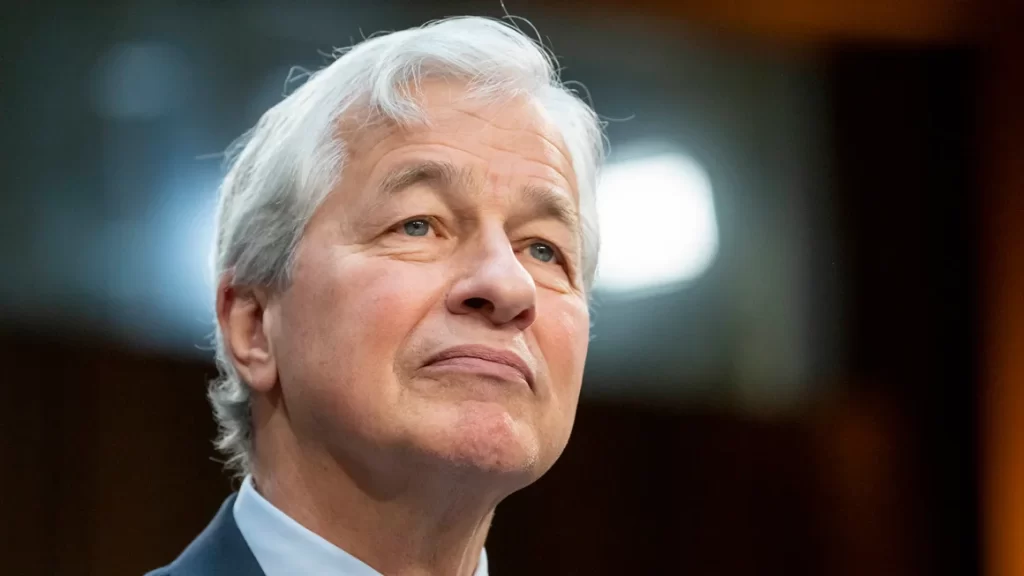
The chorus of voices warning about the dangers of record US government debt is growing louder.
In the past 24 hours, JPMorgan (JPM) CEO Jamie Dimon and Ray Dalio, founder of the world’s biggest hedge fund, have weighed in with concerns about America’s debt pile.
In an interview with Sky News Wednesday, Dimon said he hoped the US government would focus on reducing its budget deficit — the difference between what it spends and what it receives in taxes each year — before financial markets force it to.
“The sooner we focus on it, the better,” Dimon added. “At one point, it will cause a problem… the problem will be caused by the market, and then you’ll be forced to deal with it and probably in a far more uncomfortable way than if you dealt with it to start.”
Yawning deficits are adding to the overall level of US government debt because they require the Treasury to issue more bonds to plug the gap.
Dalio said he was anxious about waning investor appetite for those government bonds, known as Treasuries. “I’m… concerned about the softening demand to meet supply, particularly from international buyers worried about the US debt picture and possible sanctions (against countries other than Russia),” he told the Financial Times.
If investors become wary, they may demand higher returns — or yields — to own Treasuries — a risk already flagged by the International Monetary Fund (IMF) and the Congressional Budget Office (CBO) — and that in turn could mean higher borrowing costs across the US economy.
The comments by Dimon and Dalio reflect widespread concerns about the broader risks of the huge US government debt burden, which the Treasury Department puts at $34.6 trillion, bigger than the size of the US economy.
Dimon acknowledged that debt-fueled government spending, including pandemic stimulus, had been one of the reasons behind robust growth in the world’s biggest economy.
“America spent a lot of money, during Covid and after Covid. Our deficit (is at) 6% now, that’s a lot, but obviously that drives growth,” he said.
The spending spree has also raised consumer price inflation.
“Any country can borrow money and drive some growth but it may not always lead to good growth, so I think America should be quite aware that we’ve got to focus on our fiscal deficit issues a little bit more and that is important for the world,” Dimon commented.
Last month, the IMF said the high and rising level of US government debt risked driving up borrowing costs around the world and undermining global financial stability.
That warning followed an even blunter message from the head of the CBO, the US Congress’s independent fiscal watchdog, who said the United States risked a bond market crisis of the kind that engulfed the United Kingdom under former Prime Minister Liz Truss.
In that instance, investors effectively rejected the UK government’s plan to pay for extra spending and tax cuts by borrowing more money, leading to a selloff in UK government bonds.
There is already some evidence that investors are demanding higher returns to hold US Treasuries, according to the IMF, partly as a result of their concerns about the debt trajectory.
According to the Treasury Department, the federal government has so far spent $855 billion more than it has collected in the 2024 fiscal year, which began on October 1.
Debt servicing costs have also soared, on the back of higher official interest rates, leaving less money for public services. In fiscal year 2023, the US government spent more to service its debt than it did on each of housing, transport and higher education, according to the Committee for a Responsible Federal Budget, a non-profit.
The United States is far from alone in increasingly living beyond its means. The European Central Bank expects government debt in the 20 countries that use the euro to stay higher than before the pandemic.
This will make European governments “more vulnerable to adverse shocks,” such as growing geopolitical tensions if they require more spending on defense, it said in a report Thursday.